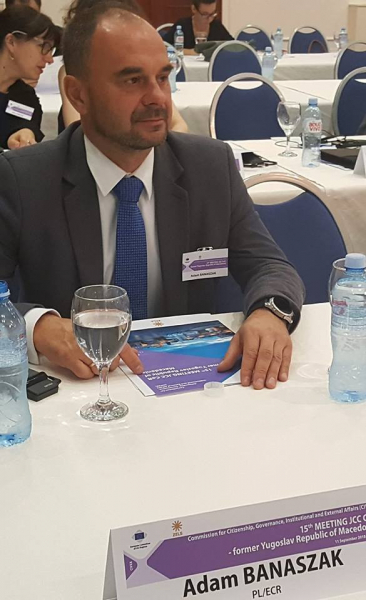
On 11 September, I had the pleasure of representing the European Committee of the Regions at talks in Skopje with the government of the former Yugoslav Republic of Macedonia (FYROM) and the mayors of its largest cities. It was a particularly crucial moment. After many years, Macedonia has managed to reach a compromise with Greece on the country's new name. Let us hope that North Macedonia will soon become a proud member of NATO and the EU.
When I visited Skopje a few years ago, the white monuments on the central square were daubed with coloured paint: residents were protesting against money being spent on useless buildings and monuments while their sewers leaked, their roads were full of potholes, and their tap water was of terrible quality. The capital's many monuments are white once again – but this is not the only change. The country has finally moved in the right direction. People now run and cycle along the river on specially built paths. The fight against corruption has started. The buildings bearing testimony to that corruption may still be imposing, but it is clear that progress is being made.
Negotiations on the country's membership of the European Union and NATO have finally started in earnest. But the most important thing is that when I spoke to residents, for the first time I sensed hope that the poorest country of the former Yugoslavia would start to develop more quickly.
The discussions of the Joint Consultative Committee between the European Committee of the Regions and the former Yugoslav Republic of Macedonia focused on changes in fiscal law in relation to local governments' activities, as well as other areas where Macedonia needs to implement reforms. These were delicate discussions, as we wanted to avoid influencing the outcome of the 30 September referendum. Not everyone held themselves to the same standard – there is a widespread belief that Russia does not want to see the country outside its sphere of influence and is interfering in its internal affairs. For us, as European politicians, there can be no doubt that it is the Macedonians themselves who have to choose the best direction for their development.
Returning from Skopje, I was pleased to note that the 30 September referendum saw the vast majority of Macedonians (more than 90% of ballots cast) vote in favour of the new name for their country – and thus in favour of normalised relations with Greece and a rapprochement with the European Union.

